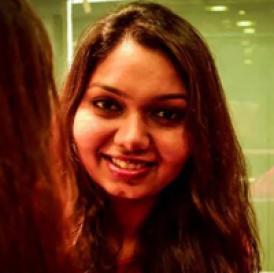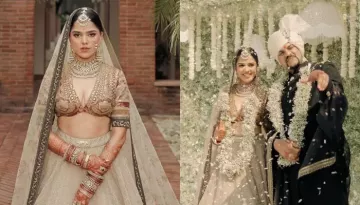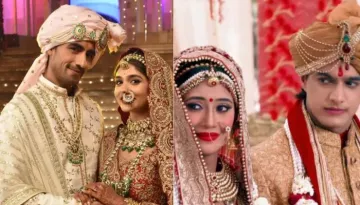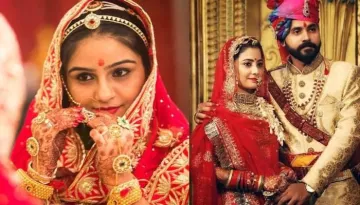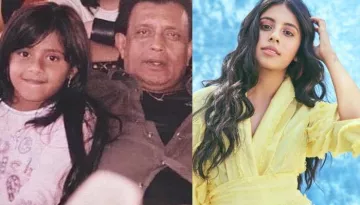The Wedding Journey Of A Marwari Bride Is Loaded With Fun, Beautiful Rituals And Loads Of Gifts
Beautiful lehenga, intricate henna design, traditional jewellery and the delicate veil, the journey of a Marwari bride is a beautiful one.
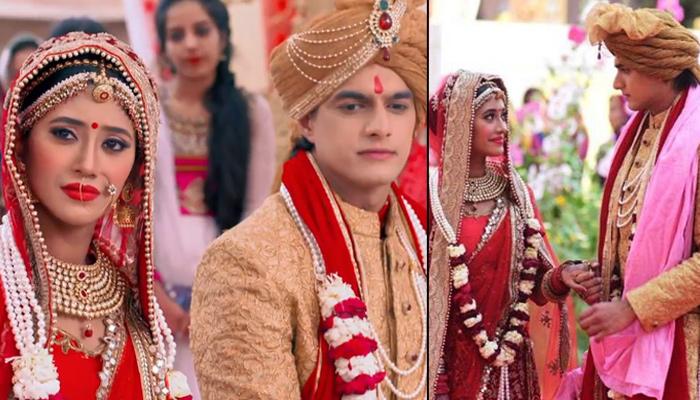
Ever attended a Marwari wedding? Isn’t it fun to attend, where the rituals are completely outside the box? In this article, let’s get into the wedding journey of a Marwari bride. So to begin with, the word ‘Marwari’ originates from the word 'marwar' which means desert and their families usually hail from the Rajasthani region. They are very traditional and believe in deep-rooted culture. Their weddings are opus and will ensure that you forever remember a Marwari wedding!
Recommended Read: 'Solah Shringar' For An Indian Hindu Bride: Hidden Meaning Behind It And The Significance
advertisement
A Marwari bride is one of the most elegant brides you will ever see. Beautiful lehenga, intricate henna design, traditional jewellery and the delicate veil, the journey of a Marwari bride is a beautiful one. From truckloads of fun rituals and tonnes of gift exchange, Marwari wedding truly is one of a kind. Read on to become a part of it!
The Sagan
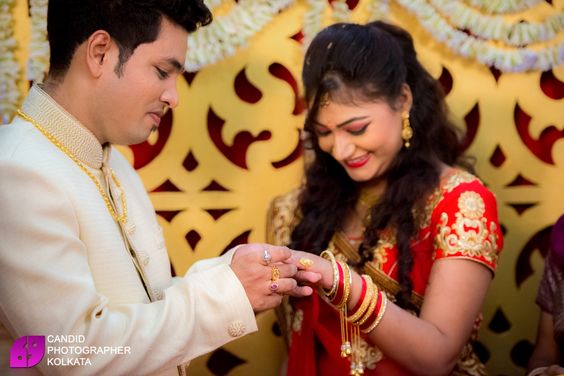
Image Courtesy: Candid Photographer Kolkata
Sagan is the engagement ceremony where the bride and groom’s families confirm that they want their children to get married to each other. The groom's family gives various gifts, including clothes, jewellery and sweets to the would-be-bride. The rings are exchanged and the sister of the groom feeds jaggery to the couple. All this takes place at the bride's place under the guidance of a pandit. He then fixes an auspicious date for the wedding.
The godh bharai
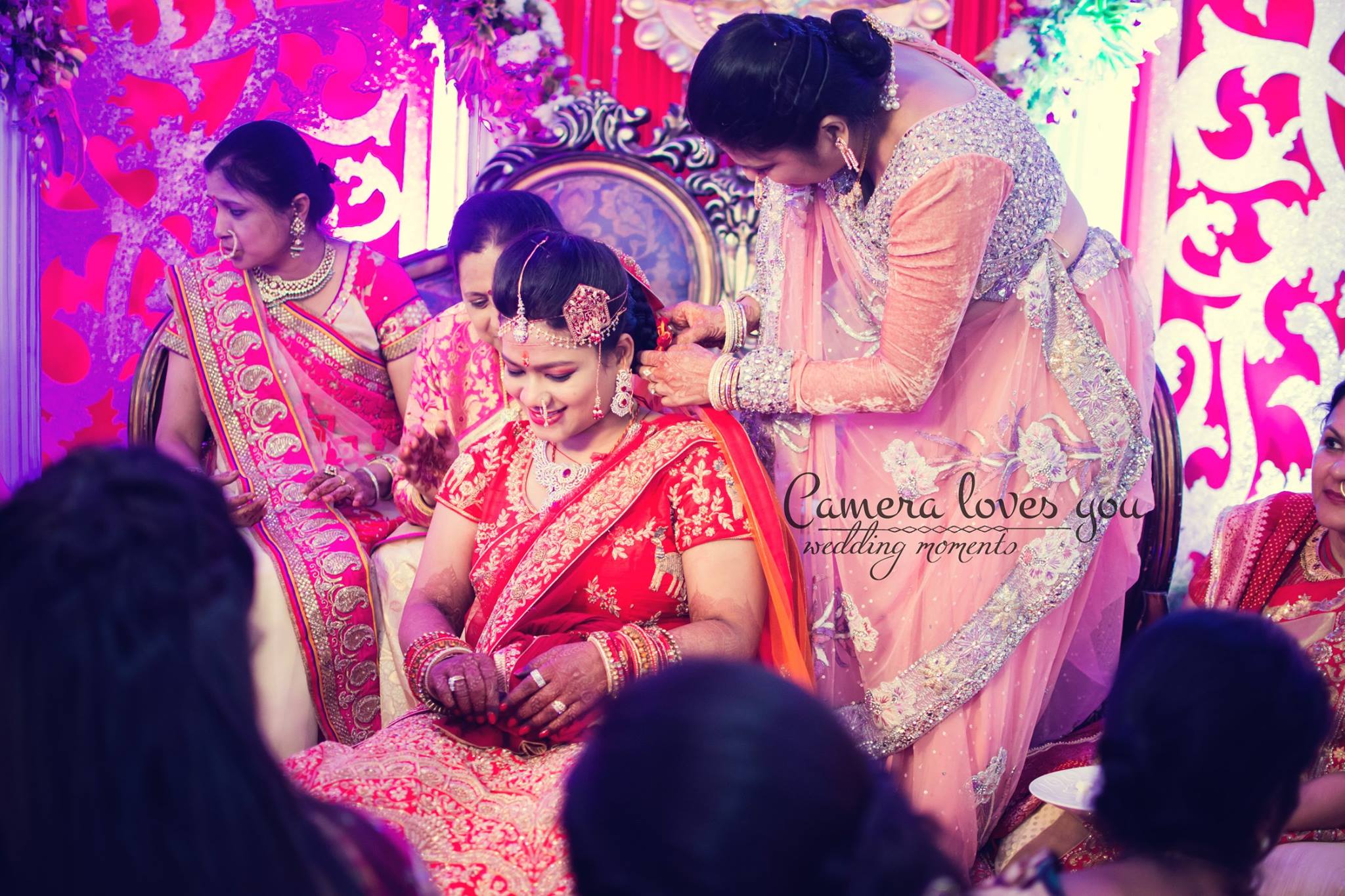
Image Courtesy: Camera Loves You Wedding Moments
It is a beautiful ritual in which the bride-to-be is pampered by her future mother-in-law and sisters-in-law. She wears beautiful clothes as an unmarried girl and later on, as the ceremony begins, she is given clothes by her in-laws along with the things that are important for a married woman like bangles, jewellery, mehendi, sindoor and toe rings. She also gets a little baby toy from her sister-in-law so that she has healthy babies in the future. Some sindoor is put on the forehead of the bride for good luck.
Pithi dastoor
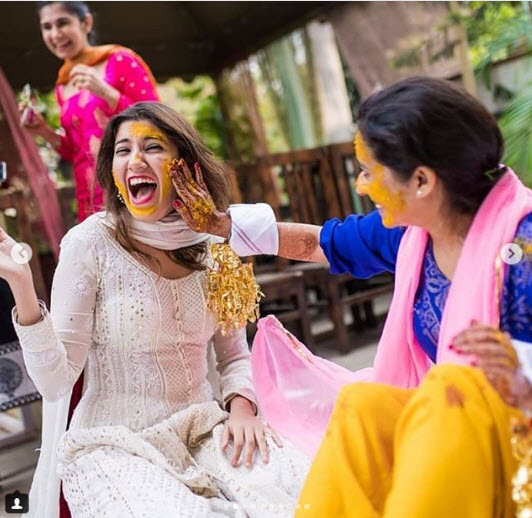
Image Courtesy: Eventila
A paste of haldi and sandalwood is applied on the bride, two to three days prior to the wedding day to give her the glow. The bride then shares some of the haldi applied on her with her single friends, sisters and cousins, so that they too get married soon.
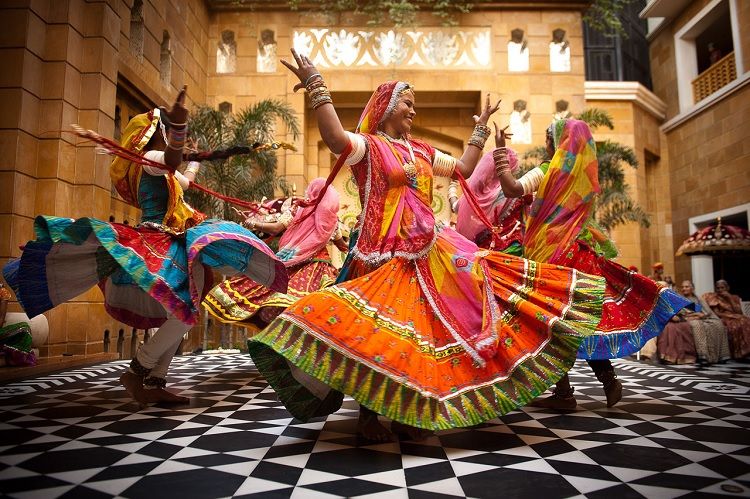
Continue reading below
Image Courtesy: Pinterest
A mehfil is set where folk songs are played and women perform the traditional dance. The bride-to-be dresses up in a traditional orange Rajasthani lehenga and comes to the mehfil under a silk canopy which is held by her brothers. The ladies then sing and the bride-to-be performs their traditional dance form, ghoomar.
Also Read: Significance Of Your Wedding/Engagement Ring And This Is What It Says About Your Marriage
Mehendi
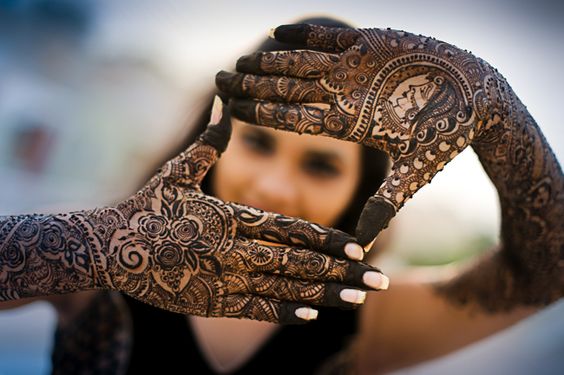
Image Courtesy: Wedding.net
Mehendi is an important part of the journey for any bride. For a Marwari bride, it is very special and is celebrated in a grand manner. Special mehendivalas are called to apply intricate designs on the hands and feet of the bride. The mehendi of a Marwari bride is never simple. It has the most detailed designs and includes auspicious motifs like a doli, the couple, dancing peacocks, elephants and much more.
Baan
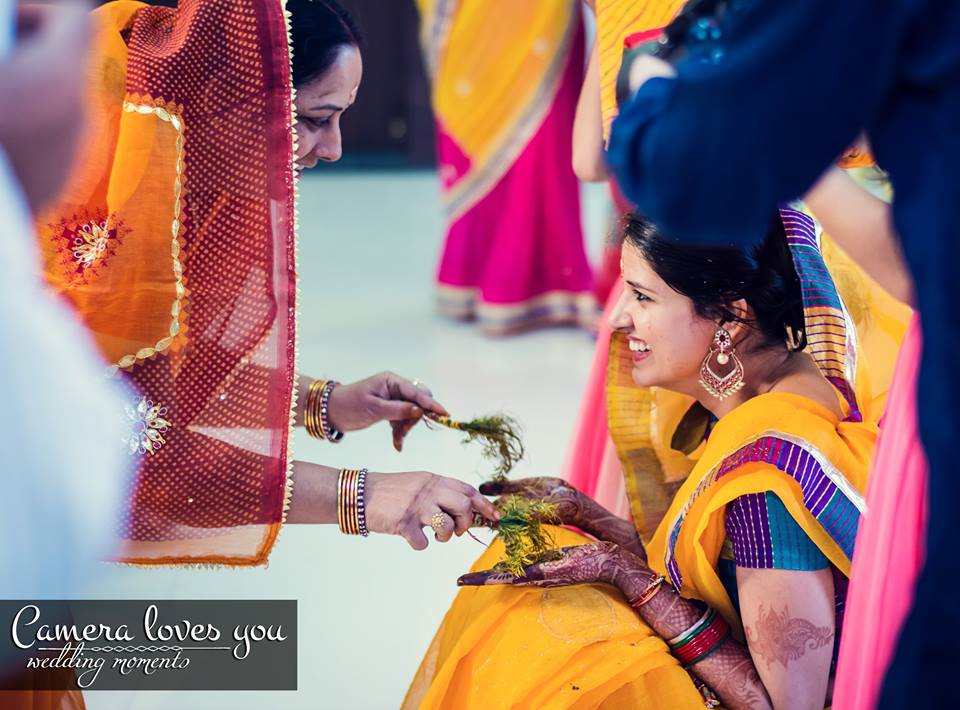
Image Courtesy: Camera Loves You Wedding Moments
This is a ritual that is performed by the married women of the house a day before the wedding and on the morning of the wedding. Pure vegetable oil, fresh milk, curd, henna and turmeric are put into separate earthen dishes and applied on the bride using grass.
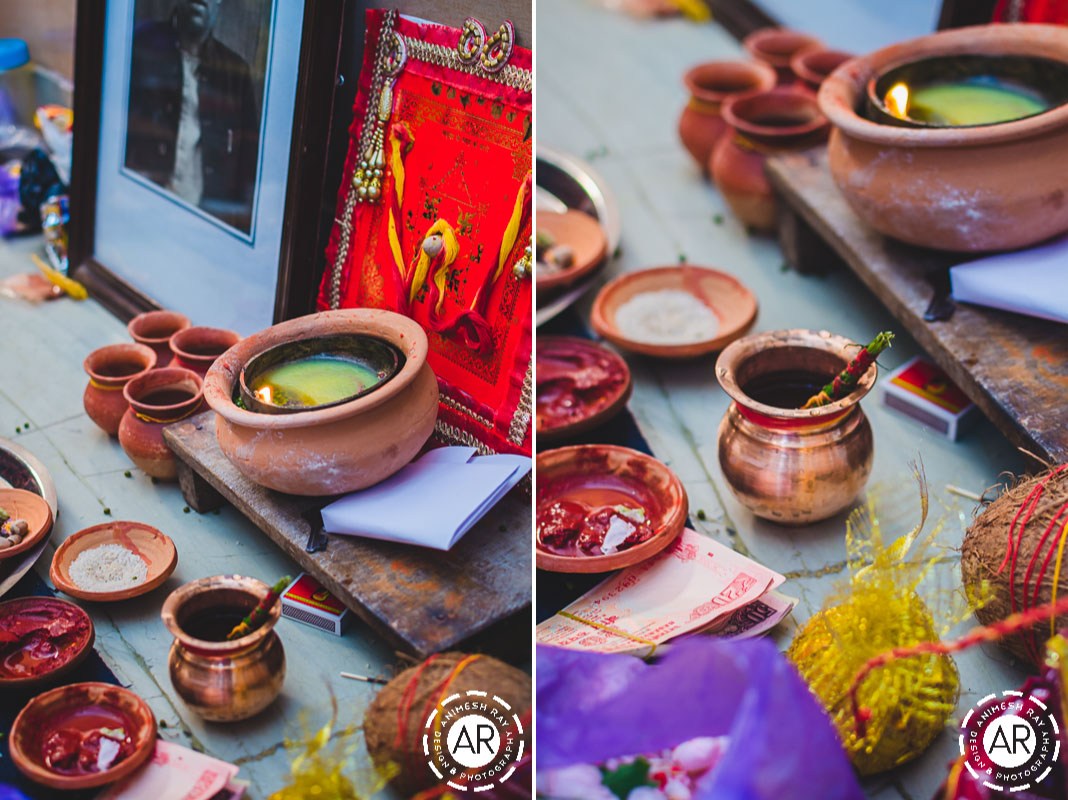
Image Courtesy: Aminesh Ray Photography
Baan takes place in the house of the bride and after it is performed, the bride cannot go outside before the wedding. Baan is supposed to ward off all the evil spirits and cleanse the bride's soul. It is supposed to make her ready for the responsibilities.
Bhaat
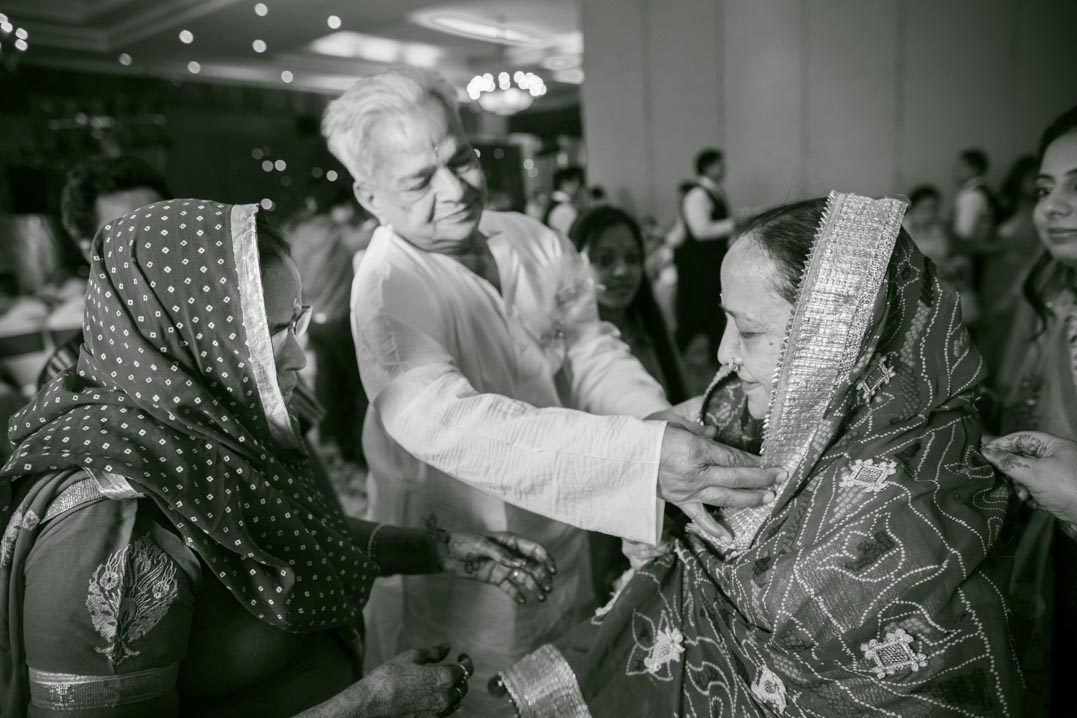
Image Courtesy: Candid Shutters
The maternal uncle of the bride comes to his sister's home with gifts and cash for the bride and all the relatives. The sister welcomes her brother and his clan with dhol and dance. She gives him rice, dry fruits and sugar, and in exchange, he gives his sister a dupatta which the sister keeps with herself for the rest of her life.
Must Read: Significance Of 'Haldi' Ceremony; 10 Reasons Why It Is Important For Soon-To-Be Bride And Groom
Nandi Ganesh puja
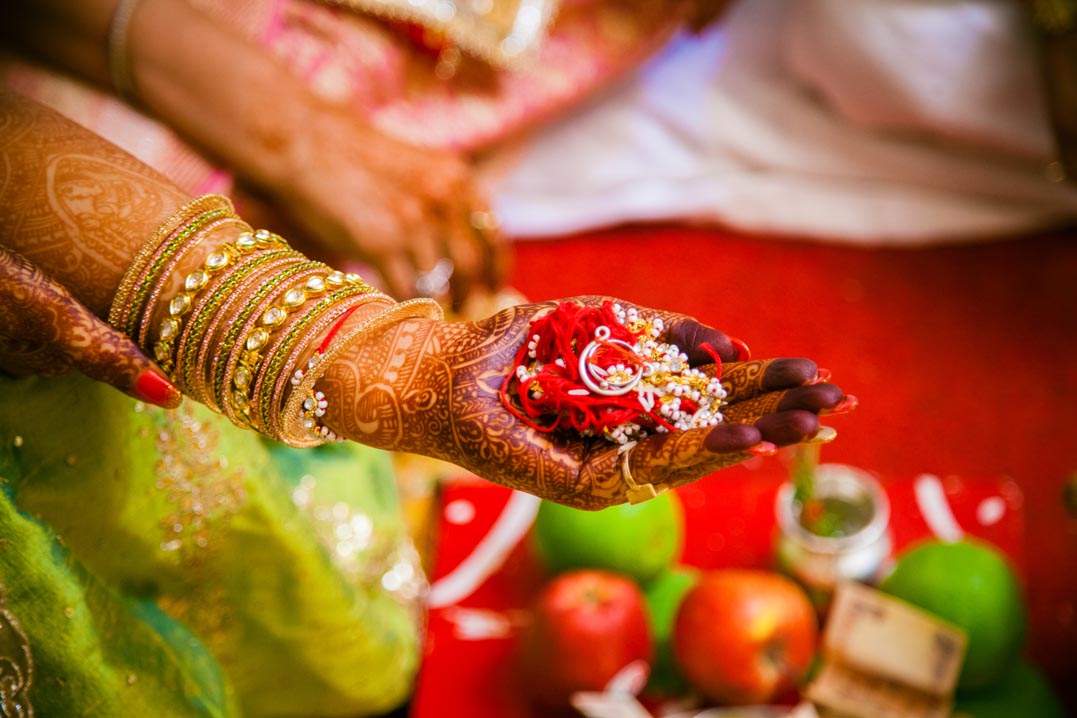
Image Courtesy: Candid Shutters
Hindus pray to Lord Ganesha before every important thing and what could be more important than a wedding? The puja takes place at the respective homes of the bride and the groom. Offerings are made to the god with the hope that there will be no hurdles during the wedding and the marriage will be a glorious one.
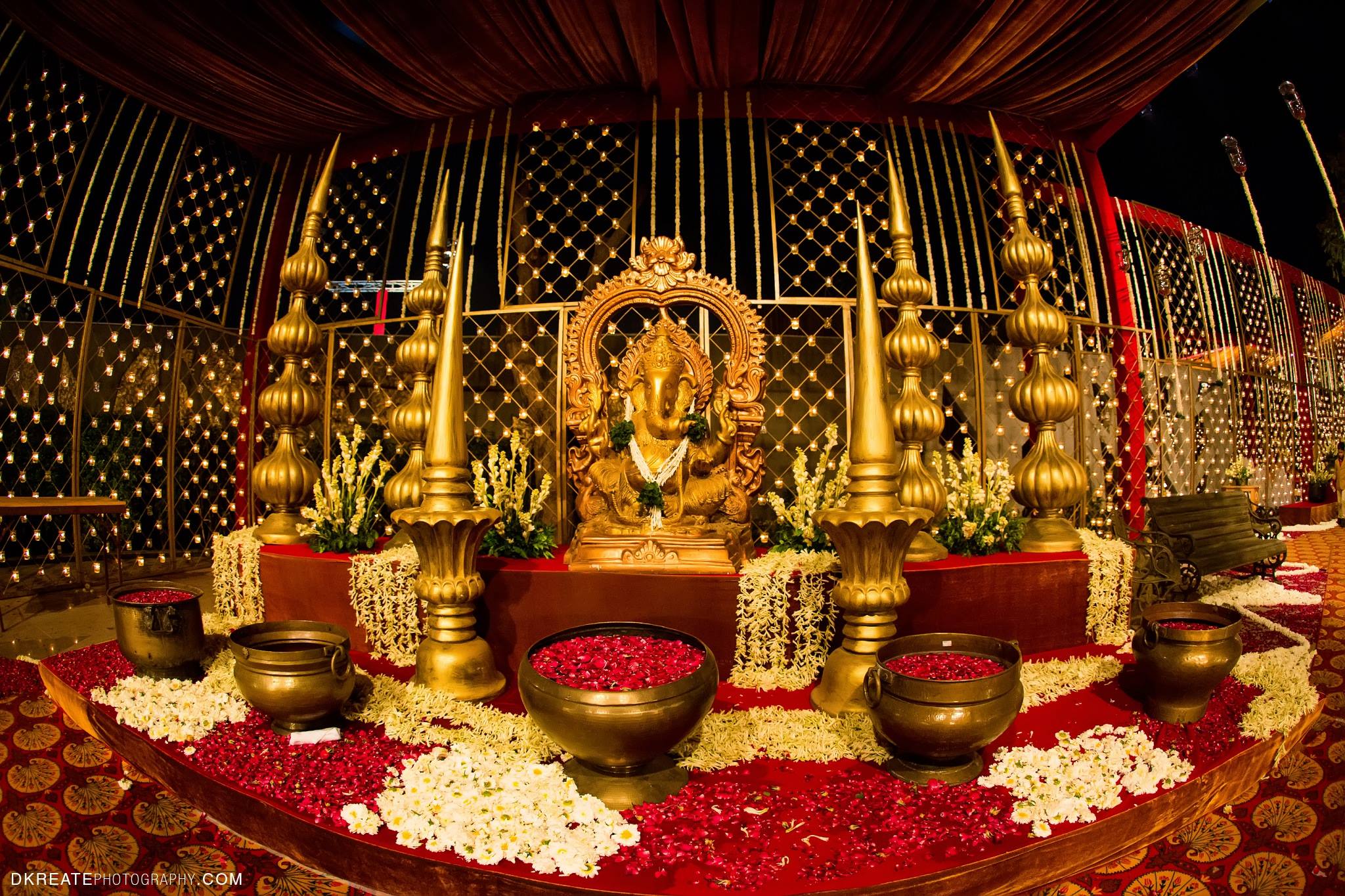
Image Courtesy: Dkreate Photography
It is believed that Lord Ganesha comes in the form of a young boy, so any young male relative of the bride accompanies her as a Bindayak or Vinayak from byah to baan. He is considered to be her protector.
Raat jagga
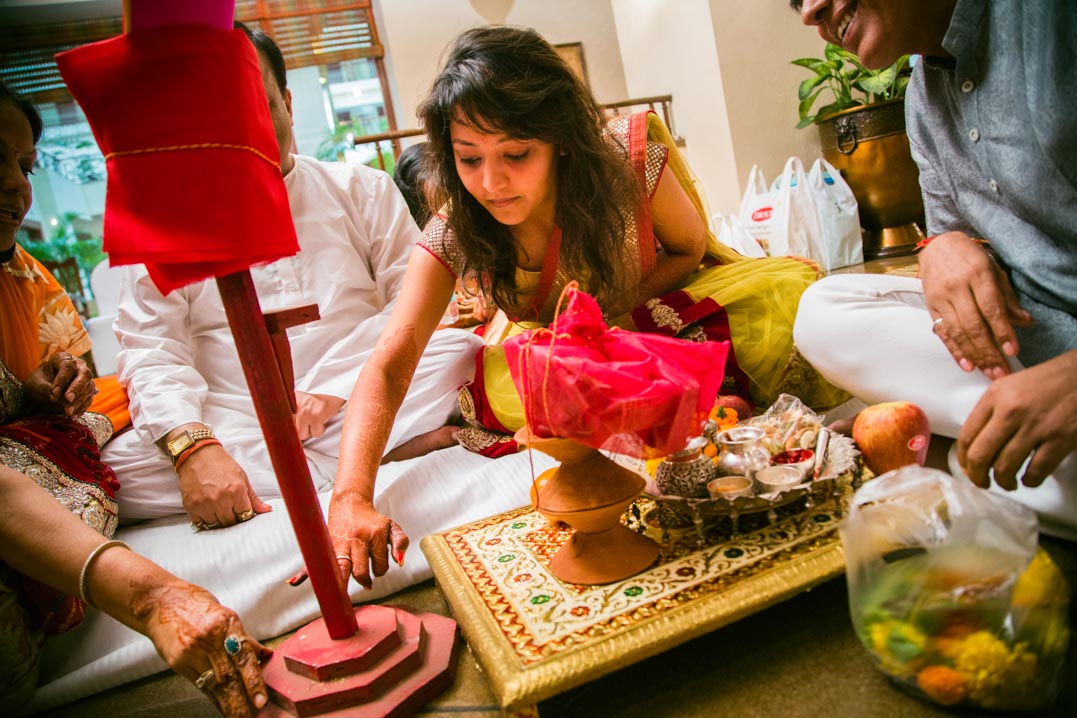
Image Courtesy: Candid Shutters
Raat jagga is an important part of the wedding festivities. During this event, the ladies of the house sing all night and craft auspicious symbols like a swastik on the wall or on the white wooden board. They are often made with fresh cow dung. Earthen pots along with other things are kept near these. The ladies pray and sing throughout the night to deviate the evils away from the bride.
Also Read: The Reasons Why 'Chooda' And 'Kalire' Hold Auspicious Importance For A Punjabi Bride
Palla dastoor
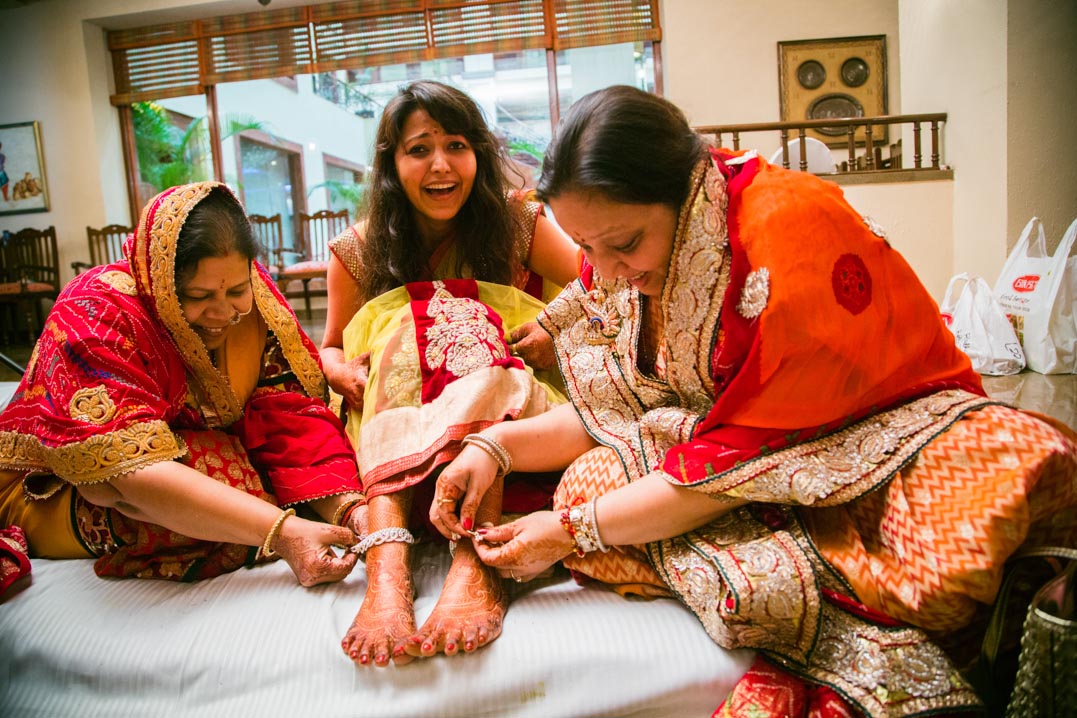
Image Courtesy: Candid Shutters
It is a very touching ceremony. In this, the relatives of the groom come to the bride's house with her wedding lehenga, jewellery and some gifts. They give her their blessings and ask her to become a part of their family.
The beautiful bride
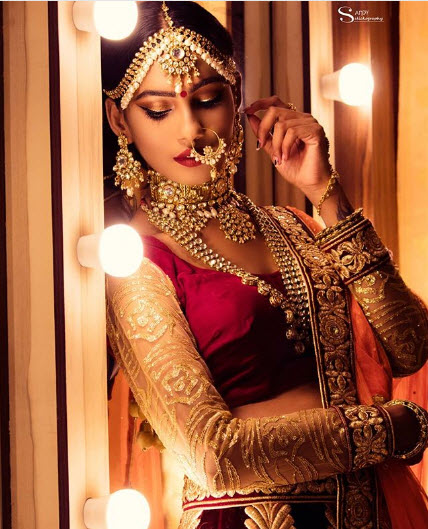
Image Courtesy: Sandy_ Clickography
The Marwari bride dresses up in a heavily embroidered lehenga. Bangles, haathphool, maang teeka, nath, an elaborate necklace and jhanjhar decorate the gorgeous bride. The colour that she chooses are mostly the shades of red, orange and pink.
The big day
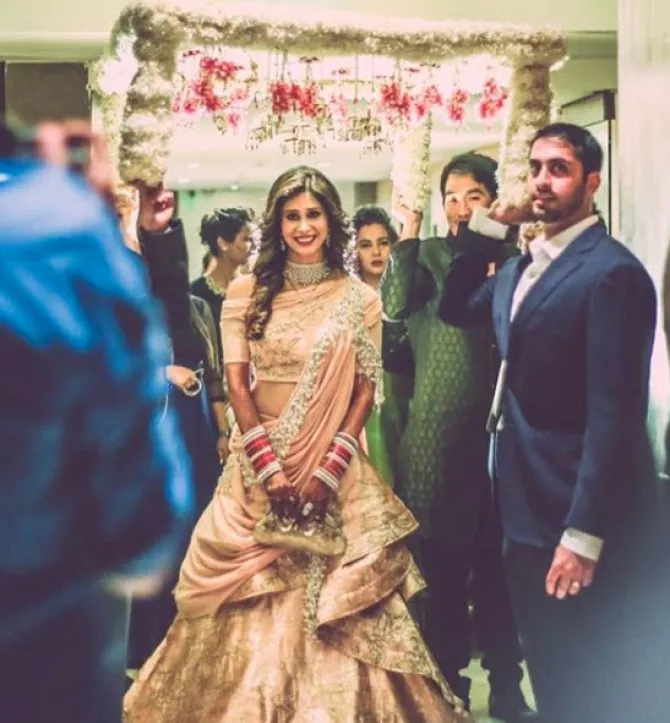
The bride enters the wedding venue under the phoolon ki chadaar with her brothers and meets her would-be-husband for the jaimala. They both exchange the floral garlands which is the first step of the wedding rituals.
Must Read: Maharashtrian Weddings: The Fun Rituals And Traditions That Make Them The Most Beautiful Weddings
Sindoor
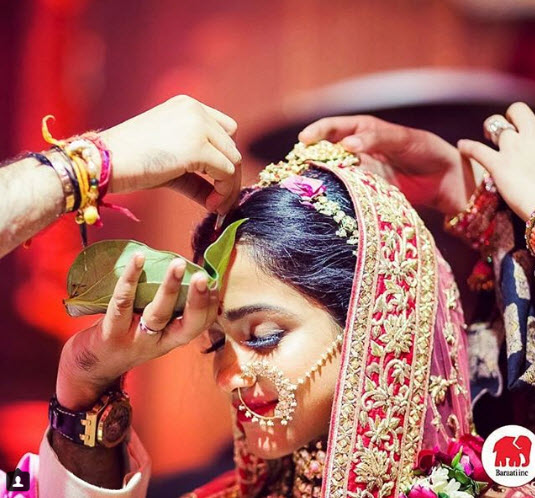
Image Courtesy: Baraati Inc
The groom then puts sindoor on the forehead of the bride and accepts her as his lifetime companion. Sindoor is very important for married Marwari women. They adorn it on their forehead every day as it symbolises the lives of their husbands.
Granthi bandhan
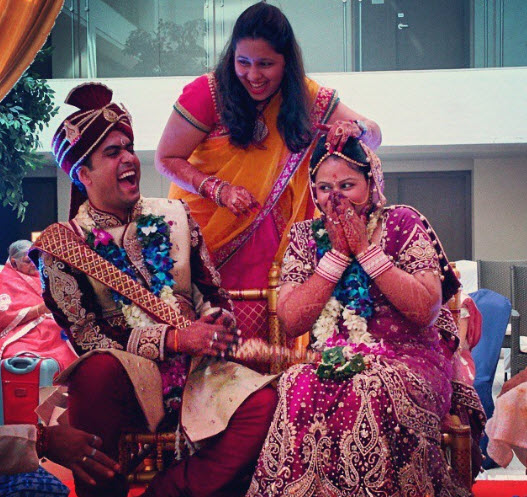
Image Courtesy: Pratik Doshi Photography
The sister of the groom performs the granthi bandhan in which she ties the dupatta of the bride to that of the groom. It signifies the union of two souls that are to be united for eternity. The mother of the bride later on keeps these dupattas together in her home.
Saat pheras
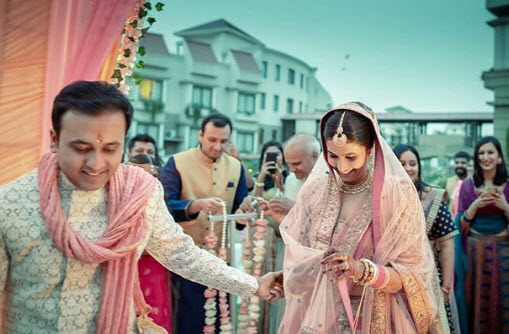
Image Courtesy: #WeddingTweet
Fire is considered to be pious. The groom and the bride walk around the havan kund and make seven vows to each other. They promise to be there for each other until the end of the time. They give ahuti to the holy fire as an offering to the god, so that they have a happy married life.
Kanyadaan
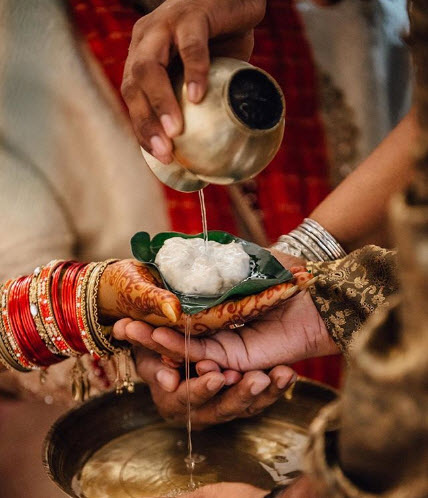
Image Courtesy: Black & Gold Photography
The bride who has lived in her parents' house throughout her life, now has to bid adieu to it. The pandit performs a puja and the parents of the bride does the kanyadaan, that is, they give away their daughter to the groom. Marwaris consider kanyadaan to be the biggest charity, as to separate from a daughter is the most difficult thing a person can do.
Vidaai
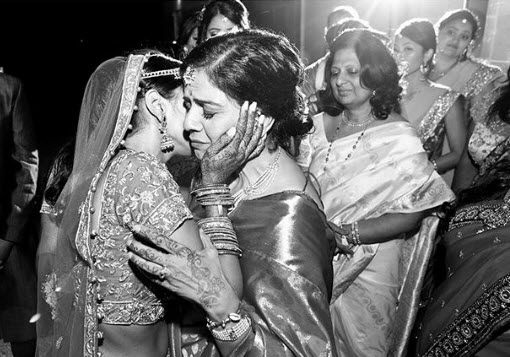
Images courtesy: Verve Photo Co.
Once all the rites and rituals are done, the newly-married couple takes the blessings of the God, the pandit and their elders for their new life. A coconut is crushed under the car of the newly-weds so as to signify the embarkment of a new life. The bride meets all her relatives and friends and prepares to leave with her husband to her new family. It is a very overwhelming experience for the bride and her family. Everybody wishes their best to the couple.
The journey of a Marwari bride is full of emotions. She wants to start a new life with her soulmate, but at the same time, the idea of leaving her family is something that is baffling for her. To become a bride is the most special thing that happens in a woman’s life.
Images courtesy: Pinterest, Instagram, Yeh Rishta Kya Kehlata Hain (Cover)
Next Read: Reason Behind 'Vidaai' Ceremony In Indian Weddings; Significance, Origin and Much More
advertisement
advertisement
advertisement
